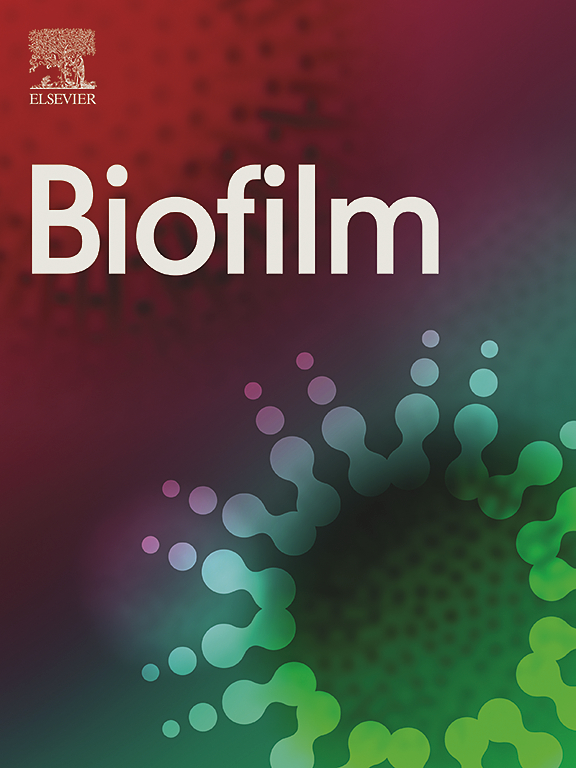肿瘤基质细胞中的半乳糖凝集素-3通过抑制氧化磷酸化增强胰腺癌患者对吉西他滨的耐药性
IF 9.4
2区 医学
Q1 BIOCHEMISTRY & MOLECULAR BIOLOGY
引用次数: 0
摘要
半乳糖凝集素-3 (Gal-3)在胰腺腺癌(PAAD)的发生发展中起着多方面的作用,并与不良预后相关。其与肿瘤微环境细胞的相互作用已被报道。然而,gal -3介导的肿瘤-基质相互作用和诱导的能量代谢与耐药的关系尚不清楚。我们之前的研究报道了肿瘤细胞分泌Gal-3和炎症细胞因子依赖是治疗靶点。在这项研究中,我们发现Gal-3的表达不仅在肿瘤中显著上调,而且与PAAD患者的肿瘤相关成纤维细胞显著相关。PAAD细胞和胰腺星状细胞共培养模型显示,Gal-3介导Ca2+/−钙调磷酸酶- nfat通路,增加肿瘤相关成纤维细胞中CCL2和BSG的转录。这些发现最终导致了肿瘤细胞低能量代谢的观察。特别是,在高gal -3的肿瘤细胞中,线粒体氧化磷酸化在功能上被抑制,这可以通过线粒体形态异常来证明较低的耗氧率和线粒体ATP的产生。CCL2-CCR2和PPIA-BSG通路的抑制表明,当Gal-3引发耐药时,吉西他滨敏感性恢复。口服天然Gal-3抑制剂修饰的柑橘果胶提取物(MCP)对原位胰腺异种移植模型中Gal-3激活的肿瘤和基质细胞有治疗作用。因此,我们的研究结果为低线粒体代谢依赖于Gal-3激活介导的吉西他滨耐药通过肿瘤-基质相互作用的事实提供了见解。本文章由计算机程序翻译,如有差异,请以英文原文为准。
Galectin-3 in tumor-stromal cells enhances gemcitabine resistance in pancreatic adenocarcinoma by suppressing oxidative phosphorylation
Galectin-3 (Gal-3) plays a multifaceted role in the development and progression of pancreatic adenocarcinoma (PAAD), which is associated with a poor prognosis. Its interaction with tumor microenvironment cells has been reported. However, the Gal-3-mediated tumor–stromal interaction and induced energy metabolism associated with drug resistance remain unknown. Our previous study has reported that Gal-3 secretion from tumor cells and inflammatory cytokine dependency are therapeutic targets. In this study, we revealed that the expression of Gal-3 was not only remarkably up-regulated in tumors but also significantly associated with the tumor-associated fibroblasts of PAAD patients. A coculture model of PAAD cells and pancreatic stellate cells revealed that Gal-3 mediated the Ca2+/−calcineurin–NFAT pathway to increase the transcription of CCL2 and BSG in tumor-associated fibroblasts. These findings ultimately lead to the observation of low energy metabolism in tumor cells. Particularly, mitochondrial oxidative phosphorylation was functionally arrested in Gal-3-high tumor cells, as demonstrated by a lower oxygen consumption rate and mitochondrial ATP production through abnormal mitochondrial morphology. The inhibition of the CCL2-CCR2 and PPIA-BSG pathways indicated the restoration of gemcitabine sensitivity when drug resistance was elicited by Gal-3. Oral administration of the natural Gal-3 inhibitor modified citrus pectin extract (MCP) showed therapeutic effect for Gal-3-activated tumors and stromal cells in orthotopic pancreatic xenograft models. Hence, our findings offer insights into the fact that low mitochondrial metabolism is dependent on Gal-3 activation-mediated gemcitabine resistance through tumor–stromal interactions.
求助全文
通过发布文献求助,成功后即可免费获取论文全文。
去求助
来源期刊

Genes & Diseases
Multiple-
CiteScore
7.30
自引率
0.00%
发文量
347
审稿时长
49 days
期刊介绍:
Genes & Diseases is an international journal for molecular and translational medicine. The journal primarily focuses on publishing investigations on the molecular bases and experimental therapeutics of human diseases. Publication formats include full length research article, review article, short communication, correspondence, perspectives, commentary, views on news, and research watch.
Aims and Scopes
Genes & Diseases publishes rigorously peer-reviewed and high quality original articles and authoritative reviews that focus on the molecular bases of human diseases. Emphasis will be placed on hypothesis-driven, mechanistic studies relevant to pathogenesis and/or experimental therapeutics of human diseases. The journal has worldwide authorship, and a broad scope in basic and translational biomedical research of molecular biology, molecular genetics, and cell biology, including but not limited to cell proliferation and apoptosis, signal transduction, stem cell biology, developmental biology, gene regulation and epigenetics, cancer biology, immunity and infection, neuroscience, disease-specific animal models, gene and cell-based therapies, and regenerative medicine.
 求助内容:
求助内容: 应助结果提醒方式:
应助结果提醒方式:


